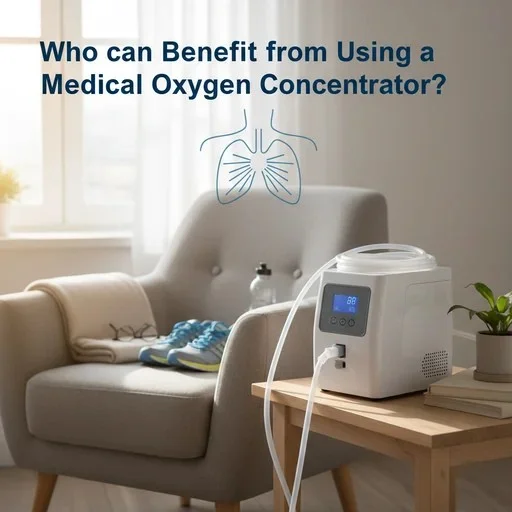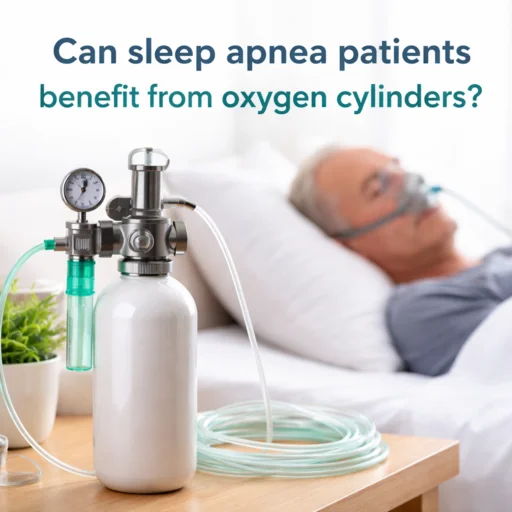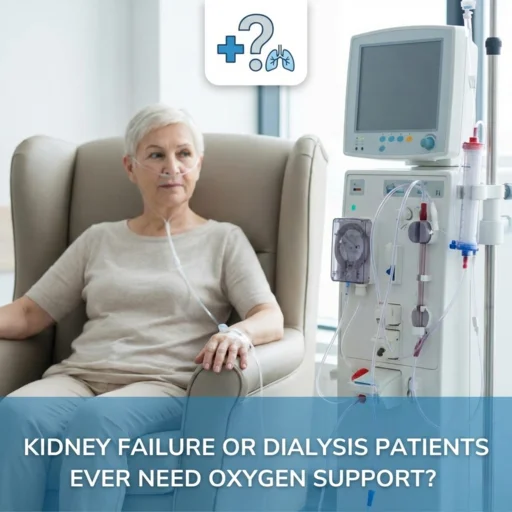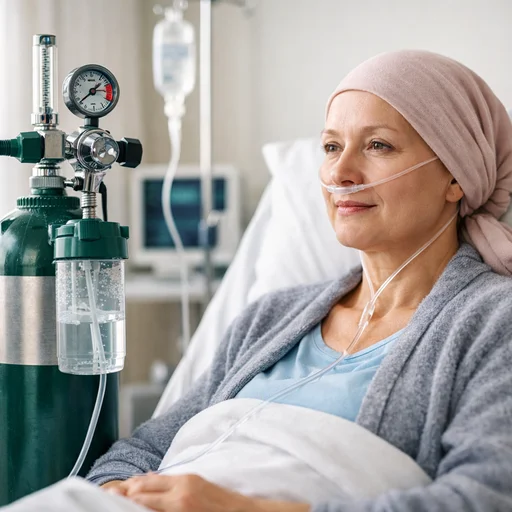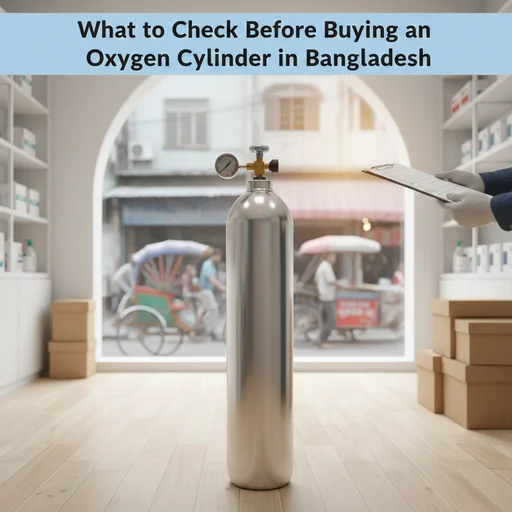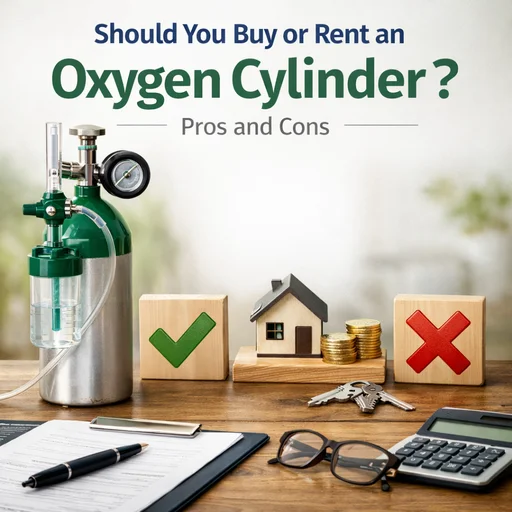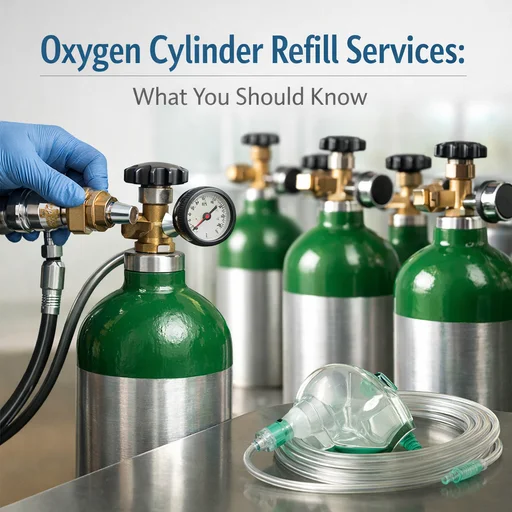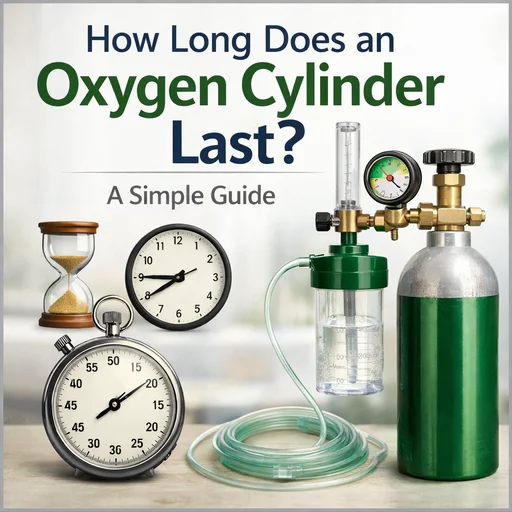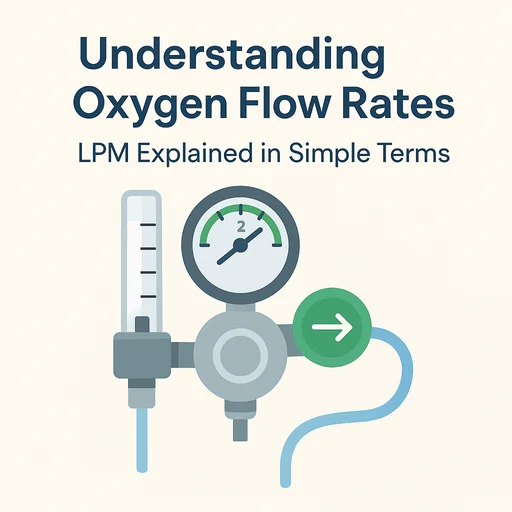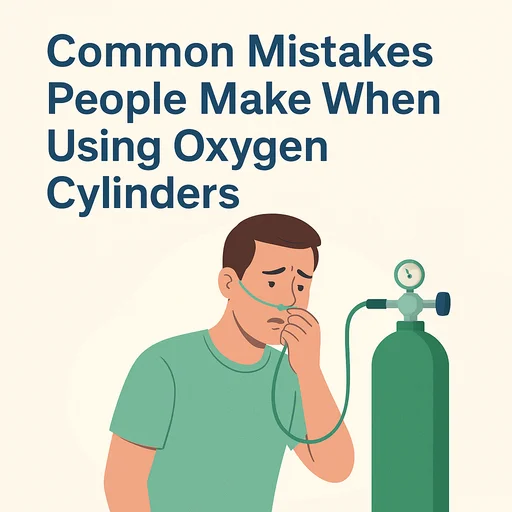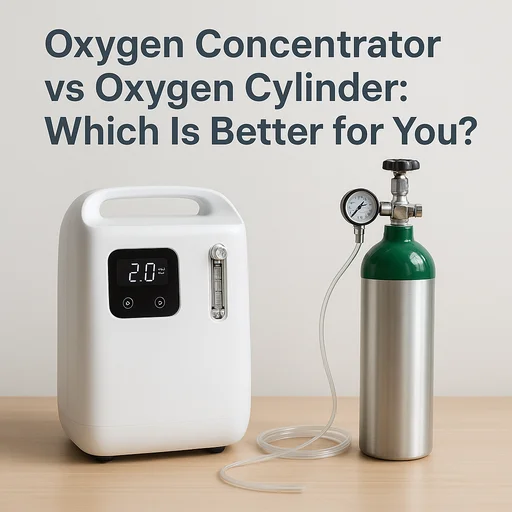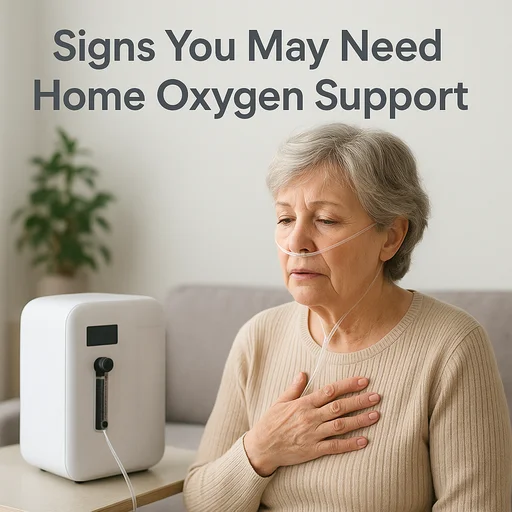Your lungs work hard every single day. Twenty thousand breaths. That’s how many times you breathe each day without even thinking about it. But for some people, getting enough oxygen with each breath becomes a struggle.
That’s where medical oxygen concentrators come in.
These devices pull air from your surroundings, filter out the nitrogen, and deliver concentrated oxygen straight to your lungs. Simple concept. Life-changing results.
But who actually needs one? Let’s walk through this together.
People Living with Chronic Respiratory Conditions
If you have COPD (chronic obstructive pulmonary disease), you know the feeling. That constant shortness of breath. The exhaustion that comes from simply trying to breathe normally.
Over 1.5 million people in the United States use oxygen therapy for chronic respiratory conditions, with COPD being the most common reason. These aren’t just numbers. They’re people trying to live their lives despite damaged lungs that can’t absorb oxygen properly.
Research shows that oxygen therapy can improve survival rates for respiratory conditions when used appropriately, while also improving mental alertness and increasing stamina. For someone with severe COPD, oxygen therapy is typically prescribed for at least 15 hours per day.
The same goes for people with asthma, cystic fibrosis, or bronchitis. When your airways are constantly inflamed or blocked, your body isn’t getting what it needs. An oxygen concentrator becomes less of a medical device and more of a lifeline.
Patients with Lung Diseases
Here’s something most people don’t realize. Your lungs can be damaged in ways that have nothing to do with smoking or asthma.
Pulmonary fibrosis. Pneumonia that won’t fully clear. Chronic bronchitis that keeps coming back. All of these conditions scar or damage lung tissue, making it harder for oxygen to pass into your bloodstream.
When you have lung problems, not enough oxygen reaches your cells to keep your body and organs working as they should, leading to low blood oxygen levels. The result? Constant fatigue. Brain fog. Your body basically running on empty.
Think of it like trying to run a car on half the fuel it needs. Eventually, everything starts breaking down.
Oxygen therapy helps fill that gap. It won’t cure the underlying disease, but it gives your body the oxygen it desperately needs to function. And sometimes… that makes all the difference.
Heart Failure and Cardiovascular Conditions
Your heart and lungs work as a team. When one fails, the other suffers.
People with congestive heart failure often develop what doctors call “overlap syndrome.” The heart can’t pump blood efficiently, which means oxygen-rich blood doesn’t reach your tissues. Meanwhile, fluid builds up in the lungs, making breathing even harder.
Heart failure can cause a type of breathing disorder called Cheyne-Stokes breathing, which involves alternating periods of hyperventilation and shallow or halted breathing. For these patients, nighttime use of both oxygen therapy and other respiratory support may be recommended.
It’s a vicious cycle. But supplemental oxygen helps break it by reducing the strain on your heart. When your blood oxygen levels are stable, your heart doesn’t have to work as hard to compensate.
The same principle applies to people who’ve had heart attacks or are dealing with coronary artery disease. Your heart needs oxygen to heal and function properly. Sometimes it just can’t get enough on its own.
Sleep Disorders and Nighttime Oxygen Needs
You might sleep eight hours a night and still wake up exhausted. Why? Because your oxygen levels drop while you’re sleeping.
Sleep apnea is the obvious culprit. For people with central sleep apnea, supplemental oxygen combined with PAP therapy can help when the brain fails to signal the muscles that control breathing. However, it’s important to note that oxygen therapy alone is not recommended as a standalone treatment for obstructive sleep apnea, as it may lengthen apnea duration.
However, here’s what many people may not know. Even if you don’t have sleep apnea, conditions like COPD or heart failure can cause your oxygen levels to drop at night. You stop moving. Your breathing slows. And suddenly your body isn’t getting enough oxygen during what should be restorative sleep.
Low oxygen levels during sleep can lead to potential brain damage due to depressed brain function, and in worst-case scenarios, loss of consciousness or sudden death. That’s not meant to scare you. It’s meant to show you why nighttime oxygen therapy matters so much.
At Marium Oxygen, we offer oxygen concentrators designed for 24/7 use, including quiet models perfect for overnight therapy. Because getting enough oxygen while you sleep isn’t a luxury, it’s essential.
Post-Surgery Recovery
Surgery takes a toll on your body. The anesthesia. The trauma to your tissues. Your immune system is working overtime to heal.
Evidence suggests wounds heal faster when patients are on supplemental oxygen therapy. That’s because healing requires energy, and energy is derived from oxygen. More oxygen means faster tissue regeneration, which means you get back on your feet sooner.
This is especially true after major surgeries. Heart procedures. Lung operations. Even abdominal surgeries, where pain makes it hard to take deep breaths.
After surgery, patients are often kept on oxygen in the recovery room because surgeons and anesthesiologists understand the benefits of oxygen therapy. These benefits can also be extended at home with a portable or stationary concentrator.
Plus, there’s another advantage. Breathing filtered air from an oxygen concentrator carries less risk than breathing natural air, which is particularly beneficial since the immune system tends to suffer following surgery.
If you’re recovering from surgery in Dhaka, we provide fast delivery of oxygen concentrators within 60 minutes inside the city. Because when you’re healing, every hour counts.
High Altitude Travelers and Residents
Ever been to the mountains and felt like you couldn’t catch your breath? That’s altitude sickness.
At elevations above 8,000 feet, about 25% of all visitors experience acute mountain sickness, with symptoms similar to an alcohol hangover, including headache, fatigue, loss of appetite, and nausea.
Here’s the science behind it. At higher elevations, air pressure is lower, and oxygen molecules exist in lower concentrations. At elevations of 4,900 feet and above, 75% of people will experience at least mild altitude sickness.
Your body needs time to adjust. But if you’re already dealing with a respiratory condition? Forget about it. The thin air makes everything worse.
Oxygen therapy is particularly beneficial in preventing high-altitude pulmonary edema and high-altitude cerebral edema, severe forms of altitude sickness that can lead to life-threatening complications. For travelers, supplemental oxygen therapy can quickly relieve symptoms of altitude sickness, particularly headaches.
Mountain climbers have known this for decades. However, now that regular travelers visiting high-altitude destinations are renting oxygen concentrators for their trips. It’s not about being weak. It’s about being smart.
Understanding the Real Benefits
Let’s get practical for a moment. What does oxygen therapy actually do for you?
The main benefit is that it helps you breathe more easily, and although it isn’t a cure and may not completely relieve shortness of breath, it should make breathing easier. However, the benefits extend beyond that.
With supplemental oxygen therapy, you may feel less breathless while engaging in activities, have more energy, be more physically active, and sleep better. That translates to real improvements in quality of life.
You can take a shower without gasping for air. You can walk to the market without needing to stop every few steps. You can play with your grandchildren. These aren’t small things. They’re everything.
Higher oxygen levels in your blood can give you more energy and help you sleep better. And unlike traditional oxygen tanks, you don’t need to worry about refills. As long as your concentrator has power, you have an unlimited oxygen supply.
Why Choose the Right Equipment Matters
Not all oxygen concentrators are created equal. Some are stationary powerhouses designed for home use. Others are portable and lightweight, perfect for people who refuse to let their condition keep them homebound.
Portable oxygen concentrators are increasingly popular, although oxygen tanks remain useful for emergencies in areas prone to power disruptions, as they require no electricity.
At Marium Oxygen, we understand this. That’s why we offer both oxygen concentrators and oxygen cylinders, along with rental and refill services. Because your needs may change, your equipment options should adapt accordingly.
We also provide installation support. Free delivery. 24/7 customer service. Because when you need oxygen, you don’t have time to wait or figure things out on your own.
The Medical Prescription Requirement
Here’s something critical. You can’t just decide to start using oxygen therapy on your own. Oxygen is a medication that requires a prescription from a healthcare provider, and using it without proper guidance can be dangerous.
Why? Because if you take in more oxygen than your body needs, it can slow your breathing and heart rate to dangerous levels, leading to oxygen toxicity or oxygen poisoning.
Your doctor needs to determine the right oxygen flow rate for your specific condition. Too little won’t help. Too much can actually harm you.
That’s why we at Marium Oxygen work as a government-approved supplier. We ensure you have the proper documentation and prescription before providing equipment. It’s not red tape. It’s safety.
Monitoring Your Oxygen Levels
If you’re using oxygen therapy, it is also recommended that you monitor your blood oxygen levels regularly. That’s where a pulse oximeter comes in.
A healthy oxygen level is 95% or higher. Anything below that, and your body starts struggling. A pulse oximeter clips onto your finger and gives you a reading in seconds. Simple. Essential.
Many of our customers also require related equipment, such as nebulizer machines for medication delivery or CPAP machines for sleep apnea. We carry everything you need, as respiratory care often involves multiple devices.
Living Better with Oxygen Therapy
Using an oxygen concentrator isn’t giving up. It’s giving yourself a fighting chance.
It means you can maintain your independence. Stay in your own home. Keep doing the things that matter to you, maybe not at the same pace as before, but still doing them.
Studies show that about 60% of patients using supplemental oxygen report increased energy levels and often experience better sleep quality. That’s the difference between merely surviving and actually living.
For people in Bangladesh dealing with respiratory conditions, Marium Oxygen serves as your reliable partner. We’re available 24/7 because breathing emergencies don’t follow business hours. We deliver throughout Dhaka division because everyone deserves access to the oxygen they need.
Whether you need a hospital bed for home care, a wheelchair for mobility, or any respiratory equipment, we’re here. Cash on delivery. Installation included. Real support from people who care.
The Reality Is
Medical oxygen concentrators benefit a wide range of people. From COPD patients to post-surgery recovery. From heart failure to sleep disorders. From high-altitude travelers to people with chronic lung diseases.
If you’re struggling to breathe, always tired despite getting enough sleep, or your doctor mentions low oxygen levels, it might be time to discuss oxygen therapy.
Your lungs are working hard. Sometimes they just need a little help.
And that’s okay.
Need oxygen equipment in Dhaka? Call Marium Oxygen for 24/7 support, fast delivery, and expert guidance. Because when it comes to breathing, you shouldn’t have to wait.

